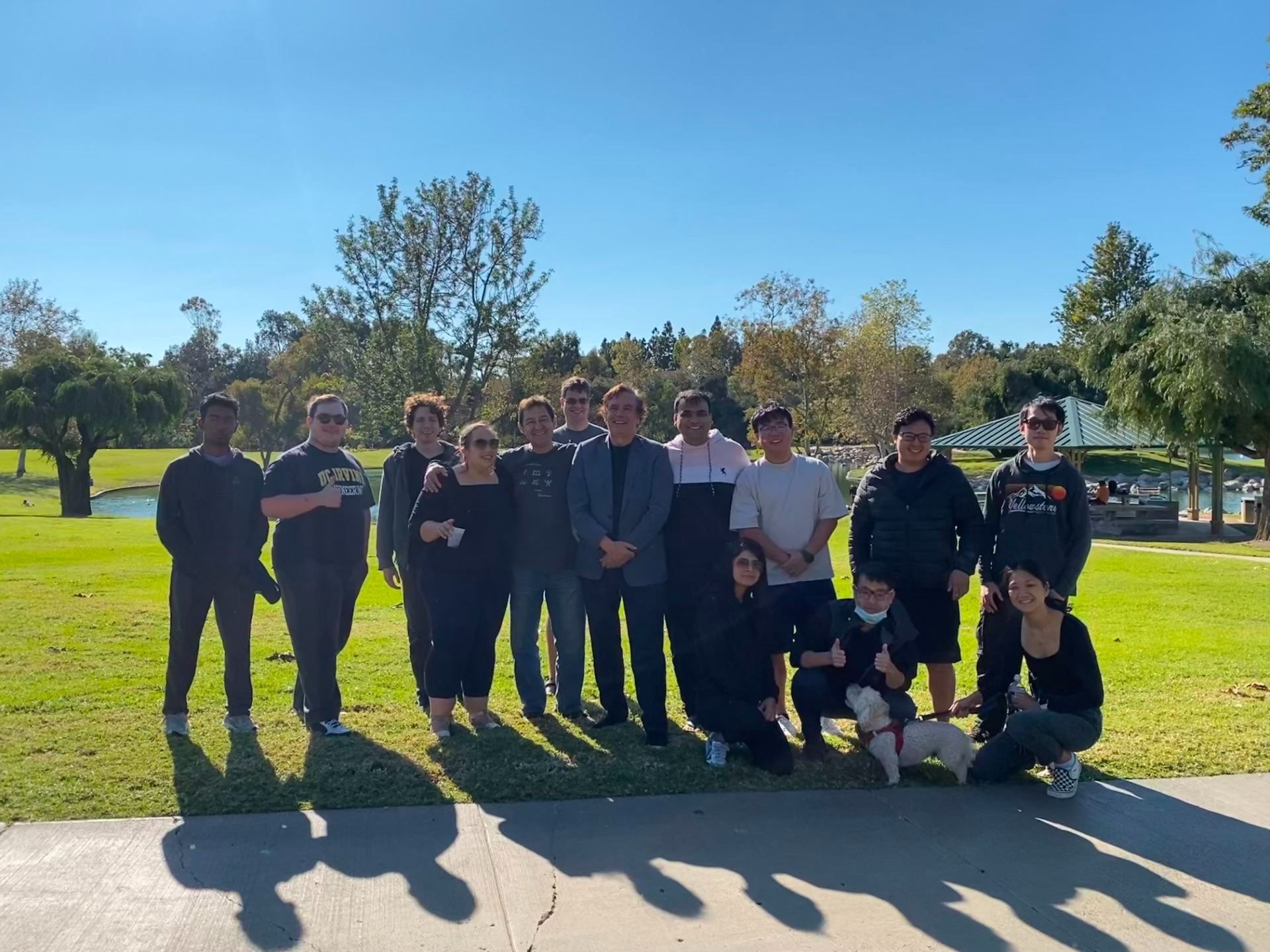Group in Summer 2023
Group in Fall 2022
Dr. Snehan Peshin, PhD
Current Position:
Senior Scientist@Zoetis Inc Dec 2023-Present
Previously:
Postdoc@ University of Washington, Bioengineering May 2023-Dec 2023
Process Engineer@ Meta Reality Labs 2022-2023
FEA Engineer@ SPRL India 2018-2019
Product Engineer@ Ford Motor Company 2015-2017
Education:
Ph.D. in Mechanical and Aerospace Engineering, University of California, Irvine, 2019-2022
M.S. in Mechanical Engineering, Michigan State University, East Lansing, 2012-2015
B.Tech. in Mechanical Engineering, Indian Institute of Technology (IIT KGP), Kharagpur, India, 2008-2012 (All India Rank 1014 in IIT JEE 2008)
- Developing novel compact disc (CD) based centrifugal microfluidics for extreme point of care diagnostics, which occurs at locations far from established hospitals and infirmaries. Fluid flow in microchannels and novel propulsion mechanisms support detection of biomarkers in the form of biosensing arrays in microchambers using fluorescence microscope/detector, including sensitivity enhancement via reciprocation, and recirculation. This also includes control of flow rates to enhance reaction kinetics to achieve signals necessary to detect cancer biomarkers in blood. Other applications include ultra sensitive lab-on-a-CD at the level of 10 molecules of nucleocapsid protein (n-protein) to achieve high sensitivity and faster diagnostics,for use to detect SARS-Cov-2 in saliva samples;
- Integrating multiple processes on a single CD such as blood plasma separation using biosensing microarrays and integration of multiple-use phase change based ferrowax valves to achieve complex flows including serial dilutionsfor scalable and faster diagnosis of SARS-Cov-2 or antibiotic resistance; and
- Developing novel and scalable micromanufacturing process recipes for microfabrication of polyimide based flexible electronics for bio-monitor applications. A blanket transfer-based suspended film on silicon microcantilevers was developed to induce nonlinearity in functional resonance for high Q-factor switches.
I look forward to applying this experience to the design of microfluidic platforms for novel cell analyzers which can detect cellular anomalies such as cancer cells at the level of a single cell. Organizing these cells analyzers into a micro-raft array provides high-speed low-cost diagnostics for a wide range of applications, such as cancer cell detection, antibiotic resistance detection and detection of other anomalous biomarkers such as the B-cell surface antigens CD79b associated with non-Hodgkin lymphomas, or the FTO gene associated with gastric cancers.
A related research goal is to develop an organ-on-a-chip for assessing drug trial results particularly for human organoid level chip platforms. This provides greater accuracy in predicting drug efficacy compared to current mouse-based trials, similar to Emulate’s human liver-on-a-chip, as well as providing better predictions of drug toxicity.
TEACHING INTERESTS
My teaching background is in the broad field of Mechanical Engineering specifically in Systems and Control, Fluid Mechanics, Microfluidics, Dynamics, Bio-MEMS (microelectromechanical systems) and Microsystems. My aim while teaching has always been to expose students to the amazing world of micro and nano systems where latest technologies are state-of-the-art and how they have a scope for improvement and inspire them to come forwards and help in this novel mission. Specifically, topics like point-of-care diagnostics, single cell analysis, lateral flow immunoassays, micro-valving technologies for complex microfluidic systems, bio-sensing arrays, micro-raft arrays and digital microfluidics are of prime interest, and I have experience mentoring dozens of students to pursue research in these fields of interests.
I am interested in teaching undergraduate and graduate courses in Fluids mechanics and systems, microfluidics, Diagnostic immunoassays for point-of-care applications, Micromanufacturing techniques, Chemical reaction kinetics in microfluidics, dynamics in microsystems, microfabrication techniques and cleanroom principles.

